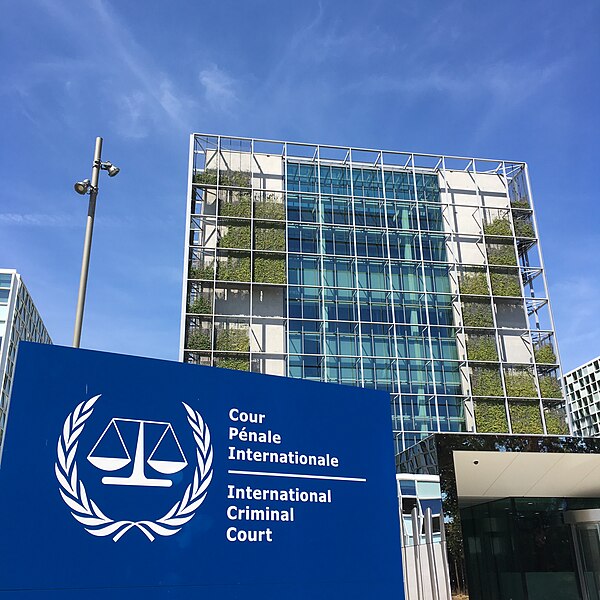Criminal law is the body of law that relates to crime. It prescribes conduct perceived as threatening, harmful, or otherwise endangering to the property, health, safety, and welfare of people inclusive of one's self. Most criminal law is established by statute, which is to say that the laws are enacted by a legislature. Criminal law includes the punishment and rehabilitation of people who violate such laws.
The Old Bailey in London (in 1808) was the venue for more than 100,000 criminal trials between 1674 and 1834, including all death penalty cases.
An English court room in 1886, with Lord Chief Justice Coleridge presiding
The exterior of the International Criminal Court's headquarters building in the Hague
Law is a set of rules that are created and are enforceable by social or governmental institutions to regulate behavior, with its precise definition a matter of longstanding debate. It has been variously described as a science and as the art of justice. State-enforced laws can be made by a group legislature or by a single legislator, resulting in statutes; by the executive through decrees and regulations; or established by judges through precedent, usually in common law jurisdictions. Private individuals may create legally binding contracts, including arbitration agreements that adopt alternative ways of resolving disputes to standard court litigation. The creation of laws themselves may be influenced by a constitution, written or tacit, and the rights encoded therein. The law shapes politics, economics, history and society in various ways and also serves as a mediator of relations between people.
Bentham's utilitarian theories remained dominant in law until the 20th century.
King Hammurabi is revealed the code of laws by the Mesopotamian sun god Shamash, also revered as the god of justice.
The Constitution of India is the longest written constitution for a country, containing 444 articles, 12 schedules, numerous amendments and 117,369 words.
Six judges of the Israel Supreme Court sitting at their bench in 1953







